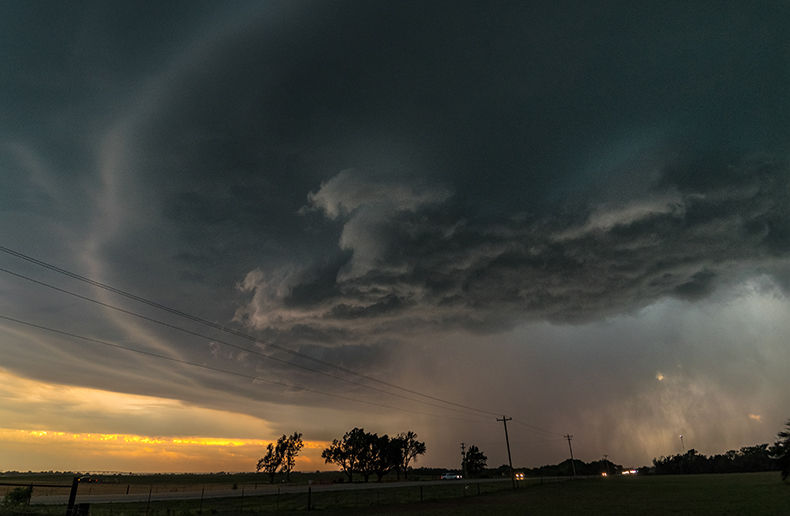Mark DeTora, the new senior vice-president, individual insurance and investments at Sun Life Financial, has a message for independent producers: “We’re back in business.”
While Sun Life was never entirely out of the business of distributing its individual products through independents, it was coming close. Following its acquisition of Clarica in 2002, sales figures for its wholesale channel, which comprises independent distributors such as managing general agents (MGAs), personal producing general agents (PPGAs) and investment firms, spiralled downward. “In round numbers, in 2004 we did about 20% of the business we did in 2001 through that independent channel. So they’ve fallen off significantly,” revealed Mr. DeTora during an exclusive interview with The Insurance Journal at Sun Life headquarters in Toronto.
But, Mr. DeTora, a Boston native who moved up to Toronto in August from Sun Life’s U.S. operations, has the objective of reversing this situation. He has a track record as a turnaround executive. In the mid 90’s he nursed the money-losing Massachusetts Casualty Insurance Company, a small disability insurance company owned by Sun Life, back to financial health before it was sold off in 1998.
Then, in 1999, he took over Sun’s U.S. individual insurance division, which was performing poorly at the time. “Again, with a new management team, we grew the business, we turned it around, and had an ROE (return on equity) in the high teens and 20’s each and every year.”
And now, Mr. DeTora’s challenge is to use this turnaround expertise to rebuild Sun Life’s independent channel in Canada. “I think I’m focused, competitive, I’m very results-oriented. I also think, probably, I bring an outside perspective.”
What went wrong
In addition, his experience is almost exclusively with independent third-party distributors, which is one of the main reasons the company brought him to Canada, he says. Post acquisition, the individual division was led by Clarica people who lacked experience dealing with the independents, resulting in the loss of business, admits Mr. DeTora. While he wasn’t there at the time, he has drawn some blunt conclusions about what went wrong after the acquisition. “I think in a general sense it would fall into three categories: not understanding their business, not having competitive products, not providing good service.”
During the integration, he elaborates, there was a lack of focus on the wholesale channel. “Some contracts were terminated, some of our competitors seized the opportunity to get some of the former producers to do business with them.”
While Mr. DeTora looks at rebuilding this channel as a key challenge, it is a key opportunity as well, he says. “The goal is to have two vibrant distribution channels. It’s not either or. It’s to have both and if we’re successful in driving increased amounts of revenue through both channels, we’ll be able to provide better products, better services, better return to shareholders, our policyholders and our distributors.”
Opportunity to grow
The opportunity is out there to grow the wholesale channel substantially, Mr. DeTora says. In the Canadian industry as a whole, about 30% of individual insurance business comes from the agency channels and 70% from the independents, he says. Of the 30% agency channel figure for the industry, Clarica would have in excess of a 40% marketshare, he adds. “So we’re doing a really good job there.”
Sun Life’s wholesale channel, on the other hand, has room for improvement. In terms of Sun Life’s figures, the Clarica channel currently accounts for 90% of Sun Life’s individual sales and wholesale just 10%. Within three to five years, Mr. DeTora would like to see this ratio at 60% Clarica and 40% wholesale.
To achieve the goal of rebuilding its independent channel, Mr. DeTora is in the process of implementing major changes to his division’s organizational structure in addition to revamping the company’s product line and enhancing service and support to independent producers.
Part of this strategy involves getting the right people in the right place – people who understand the wholesale market and can ensure that the internal staff also understand the specific needs of this channel. In December, he reorganized his management team to better align it with his strategy.
Significant changes to this structure include the creation of a head of underwriting position and a head of marketing position for the individual insurance division. Ray Kong has been appointed the new vice-president, marketing while Pat Faichnie, formerly of Manulife Financial, has been named the new vice-president, underwriting. She brings extensive experience with the wholesale market to the job, particularly with large cases, says Mr. DeToro. As well, in January, David Gray was named vice-president, wholesale distribution for the individual division. From 1999 to 2004, Mr. Gray was the vice-president, national accounts at Maritime Life.
Improving the product line is also key to attracting independents. (See inset text Sun Life has multiple product initiatives slated for 2005.)
In order to enhance service to advisors, Sun Life created dedicated underwriting teams for its Clarica and wholesale channels last fall. Mr. DeTora thinks the dedicated team concept is important because the underwriting needs of the two channels differ. “I think in the wholesale channel, and with our top Clarica advisors with the complicated cases, you need more underwriting expertise, but you also need the personal touch.”
In time, he plans to expand this dedicated team approach to post-sales support. This year, Sun Life is also planning to introduce a VIP service for its top advisors in each of the channels. The VIP service will provide top producers with benefits such as priority case handling and direct access to underwriters, among others.
One of the keys to better service is simply consistency, he adds. “That if we tell people it’s going to take 30 days, that in 30 days we do it. So set the expectation and deliver.” Also important to him is ensuring that all of Sun Life’s producers understand that their business is appreciated, Mr. DeTora emphasizes. “And, part of that is being efficient and having quick turnaround time, part of that is knowing who our top producers are, part of that is by recognizing them through this VIP program.”
MGAs recruited
Since September, Sun Life has been implementing another strategic part of its wholesale channel rebuilding plan – the recruitment of a select group of MGAs from across Canada. As of the end of March, the insurer had signed up 10 new MGAs. Among them are: Wise Riddell Financial Group, IDC Financial, Groupe Cloutier, The Gryphin Advantage, Barrington Wealth Partners and HUB Financial.
Mr. DeTora says Sun Life’s target is to sign up a dozen MGAs although “12 is not a hard and fast number. It’s just a number that feels right. It could be plus or minus, but it won’t be 50…What we’re trying to do is find people who want to be partners with us, where we can be an important manufacturer and have enough partners that we can meet our growth objectives without having so many contracts out there that we devalue the contracts.”
He adds that he wants to avoid being in the “casual brokerage business” where an insurer gets the occasional case because its product is the cheapest. “We tend to have a full, competitive product offering and would like to strike meaningful relationships with a limited number of distributors.”
In addition to this MGA channel, the company is maintaining relationships with about 10 PPGAs. “These are individuals who stuck with us during the drought and continue to give us business. And, while our strategy is not to add to that list, we will continue to deal with them and those people come direct to us. They don’t go through an MGA or any other entity.”
Consolidation helpful
Mr. DeTora says market consolidation is helpful to Sun Life’s initiative to rebuild its independent channel. For example, after Manulife Financial acquired Maritime Life, he received calls from MGAs who were inquiring about the possibility of becoming distributors for Sun Life. “One of the questions that I always asked them was, ‘Why are you calling Sun?’ and you get a variety of answers, but one I’ve heard a number of times was ‘well Maritime’s disappeared and we need a good alternative.’”
As well, rumour has it that a few more insurers might be up for sale, he says. If these companies go away, Sun Life’s position in the marketplace would be strengthened, he predicts. “While Manulife is a great company…there’s less choice and I think that producers want to have choice…I do think we are a very viable choice. We’re not going to get business just because we’re Sun Life. We’ll get business because we’re Sun Life and we have the right products and services and we work hard at winning business.”
IDA channel
Sun Life also wants to strengthen its ties with Investment Dealer Association (IDA) and Mutual Fund Dealers Association (MFDA) firms. The insurer already has contracts with most of the major firms, but wants to deepen these relationships.
He believes these firms are evolving to full financial planning rather than just carrying out transactions. “I think there is no better organization than Sun Life when it comes to bringing new people in the business, training them on insurance products and concepts.”
As a longer term aspiration, he would also like to develop Sun Life’s reputation as an insurer that can handle the large cases. Though a niche player in the United States, Sun Life is well known there in the high-end market. “We had the underwriting expertise, we had the reinsurance capacity, we had the advanced planning staff that understood the uses of life insurance in sophisticated planning situations. When our distributors had a large, complicated case, they thought of us.” In the next three to five years, Mr. DeTora wants to be in the same position in the Canadian market.
Wait and see
Mr. DeTora also sees a big opportunity, “although it will be hard work, and one at a time,” to try to win back business from some of the company’s former producers. He believes that some people will be sceptical given the last few years and will have a wait-and-see attitude toward Sun Life.
However, he is confident that Sun Life’s strategy to win back independent distributors will pay off. “We’re not going to be the best at everything,” he concludes. The objective is to make sure producers understand where Sun Life’s products work, help them identify situations where the company can be of help and ensure that “when they have a piece of business, that we handle it efficiently and, overall, they have a positive experience. It’s about blocking and tackling, there’s no magic.”






